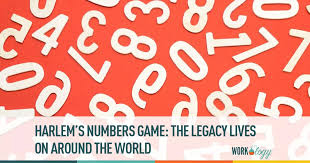The Story of the Numbers
By Don Valentine
We all have heard of “Playing The Numbers” but few know how it really began. Before 1920 there were several lottery games of ill repute in New York city. The winning numbers were often chosen in unreliable ways. In the early 1920s, Casper Holstein, a Black porter, liked to study the Clearing House totals. The Clearing House managed the exchanges of money among New York City banks on a daily basis. It occurred to Holstein that the numbers printed were different every day.
According to the 2010 book “Playing the Numbers,” Holstein came up with a brilliant solution. He used the Clearing House totals to produce a random three-digit winning number for a new kind of lottery game. Then he created a daily lottery. He would own several night clubs with the racket he ran.
It was an immediate hit and quickly created a sprawling underground economy that moved through Harlem and other Black communities across the nation. For 60 years, the Numbers reigned supreme as New York City’s pre-eminent daily lottery game. Then in 1980, New York state decided it wanted in. The state run lottery in New York was the precursor to state run lotteries across the country. Numbers money provided a foundation from which stellar careers could be launched in everything from athletics to public service to entertainment. Colin Powell’s father bought their family home with proceeds from hitting the Number. Harry Belafonte’s Uncle Lenny ran a Numbers racket, and was an early example of success for the singer. The singer Lena Horne’s father, Teddy, was a Numbers operator. Stephanie St. Clair, known as Madame Queen, was the only woman to run a successful Numbers game in Harlem in the 1920s and 1930s.

